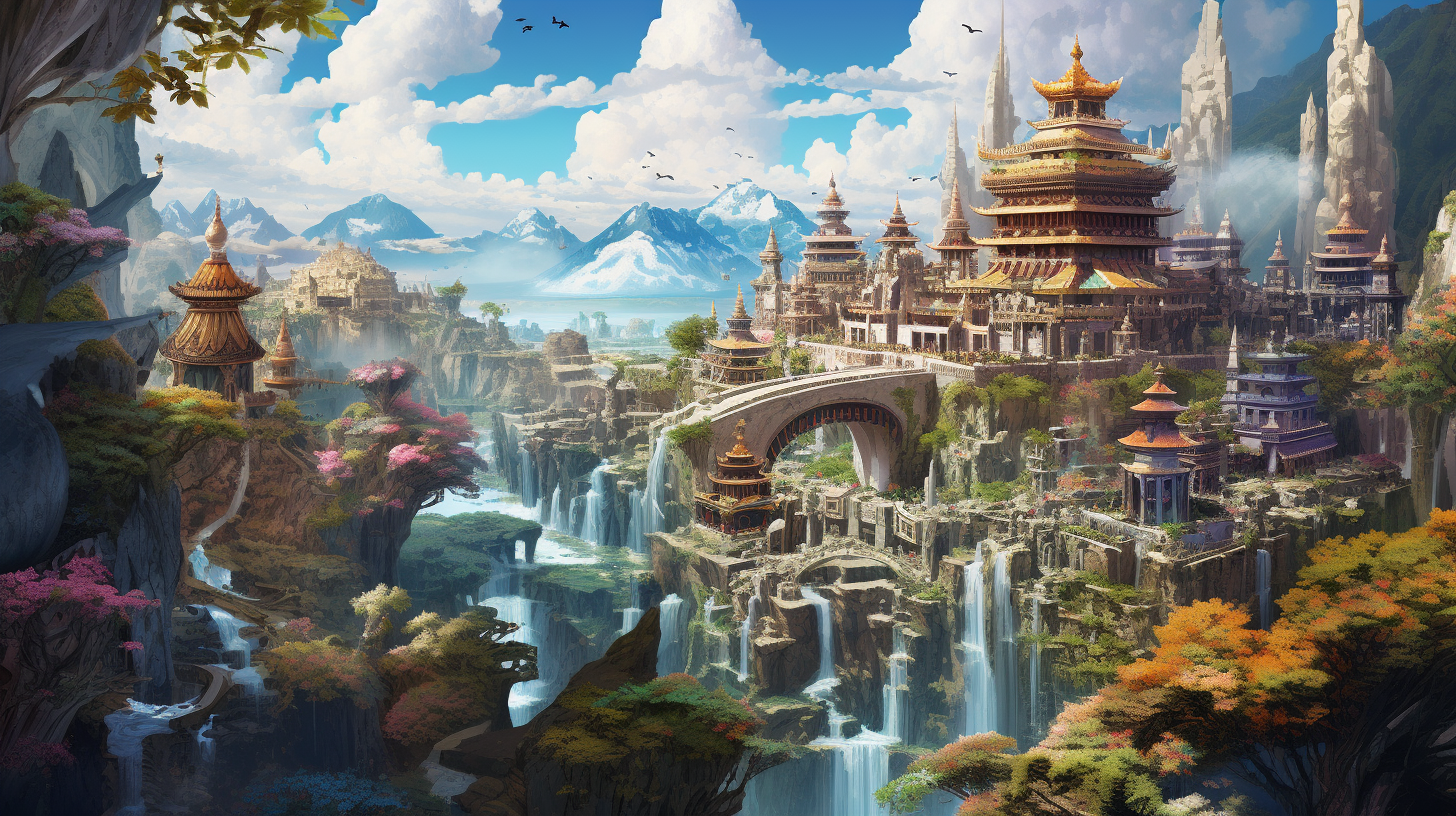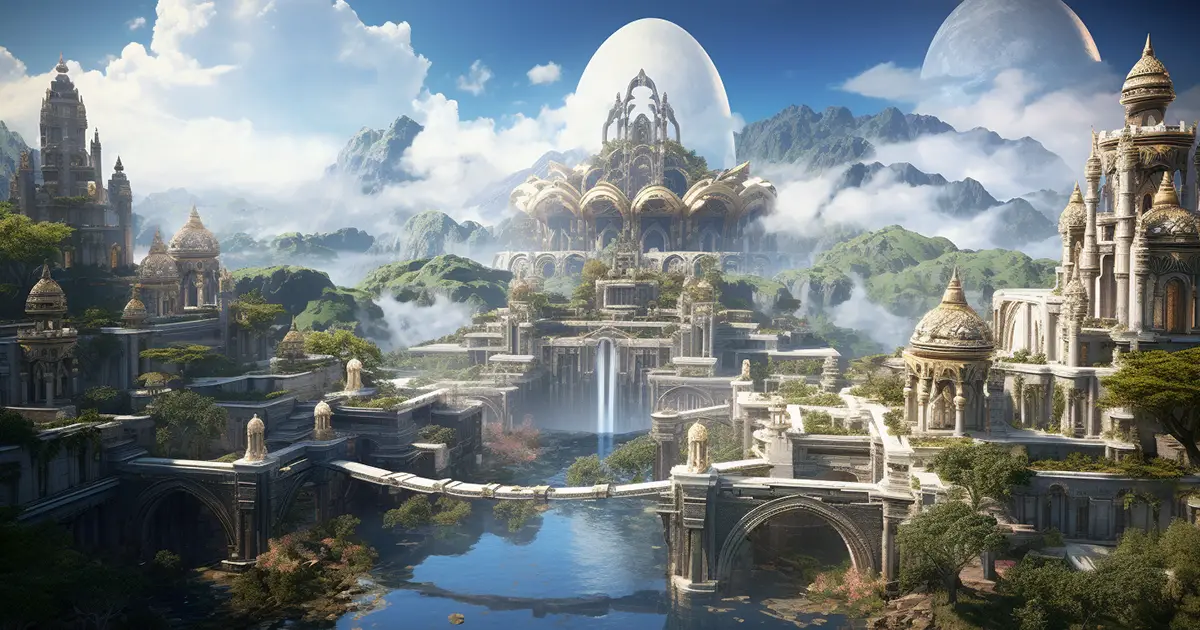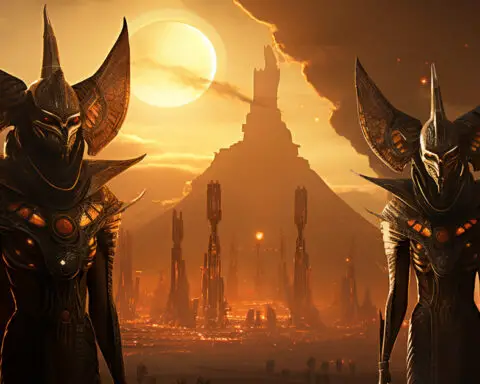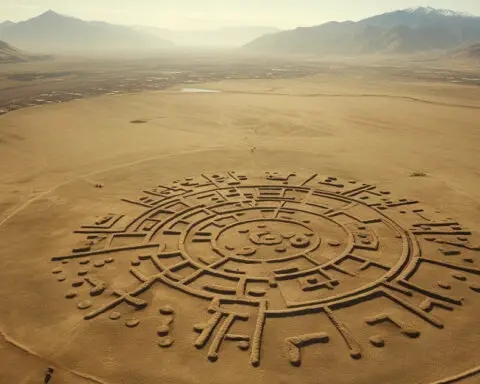Introduction:
In the remote reaches of Tibet, nestled amidst the towering peaks of the Himalayas, lies a mystery that has baffled researchers, historians, and UFO enthusiasts alike. The ancient ruins of Guge, remnants of a once-thriving Buddhist kingdom established in the 10th century, have long captivated the imagination of those drawn to the enigmatic. This civilization flourished for seven centuries before its inhabitants mysteriously vanished into thin air, leaving behind a treasure trove of intrigue and unanswered questions. In this blog post, we delve into the mystique surrounding Guge, exploring the theories that connect it to UFO sightings and the mythical kingdom of Shambhala.
The Enigma of Guge:
In 2020, explorers ventured into the Ingari Prefecture of Tibet, ascending to over 12,000 feet to discover the awe-inspiring ruins of Guge. What they found was nothing short of astonishing. These ruins, located in the southwest corner of Tibet, once housed thousands of temples and palaces adorned with intricate artwork, sacred carvings, and images of Buddha. Guge was a kingdom of great influence in its heyday, radiating power and glory.

However, history took an inexplicable turn when Guge’s inhabitants seemingly vanished without a trace. Local legend shrouds this disappearance in mystery, with no clear answers as to why they abandoned their magnificent capital. Theories abound, but none offer a definitive explanation. Guge became a part of the central Tibetan government in 1680 but remained isolated for over two centuries. Then, in the early 20th century, the Tibetan government decided to tax the residents of Guge, only to find that the entire population of approximately 100,000 had mysteriously disappeared.
The Underground Secrets of Guge:
(01:28) Rumors and legends suggest that the people of Guge embarked on an epic pilgrimage underground, into the labyrinthine tunnels and hidden staircases beneath the fortress of Guge. Archaeologists were astonished to discover that these tunnels seemed to lead deep into the Earth, sparking questions about where they might ultimately lead.
(02:15) Some believe that the tunnels of Guge might lead to a mystical destination: the hidden city of Shambhala. According to legend, Shambhala is a city full of light and power, hidden from the eyes of ordinary mortals. Could it be that the people of Guge embarked on a journey to find this fabled realm?
Mount Kailash and UFO Sightings:
(03:00) Adding another layer of intrigue to the Guge mystery is Mount Kailash, a sacred peak that looms in the east, visible from the Guge ruins. Every year, thousands of pilgrims undertake the treacherous journey to the base of this mountain, seeking blessings and spiritual enlightenment. Yet, Mount Kailash is not just a site of religious pilgrimage; it is also associated with UFO sightings and unexplained phenomena.
(03:41) Ancient Buddhist texts, specifically the Kalachakra Tantra, suggest that Shambhala lies behind or within Mount Kailash. Some pilgrims and observers have reported witnessing mysterious objects in the sky near this sacred peak. These UFO sightings add an element of otherworldly mystery to the already mystical surroundings. The enigmatic nature of Mount Kailash deepens as stories circulate about something “radioactive” hidden within the mountain, and tales of inhabitants living both in physical and non-physical forms.
Video:
Conclusion:
The ancient ruins of Guge continue to beckon adventurers, researchers, and seekers of the unexplained. The lost Tibetan kingdom’s connection to UFO sightings and the mythical realm of Shambhala tantalizes the imagination and raises countless questions. What happened to the people of Guge, and did their journey lead them to an underground realm of enlightenment? Is Mount Kailash a hotspot for unexplained phenomena, including UFOs? As we delve deeper into these mysteries, one thing remains clear: the enigma of Guge is far from being unraveled, leaving us to ponder the ancient aliens, lost kingdoms, and hidden truths that may lie hidden in the heart of Tibet’s majestic mountains.






